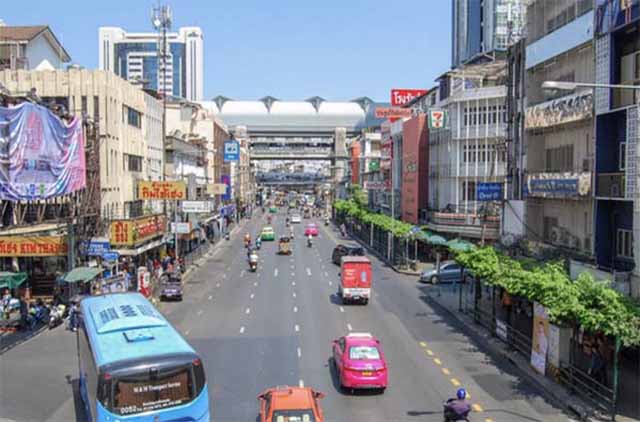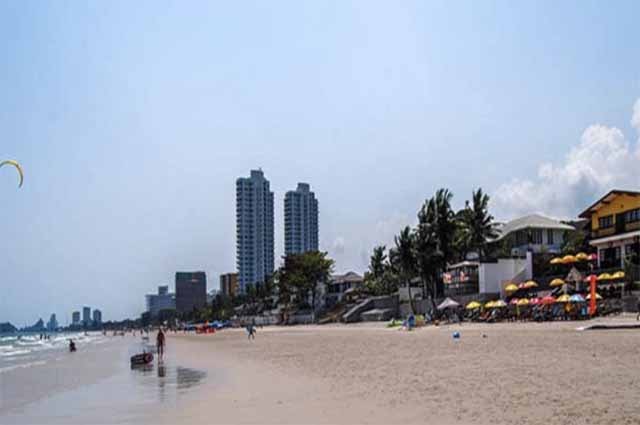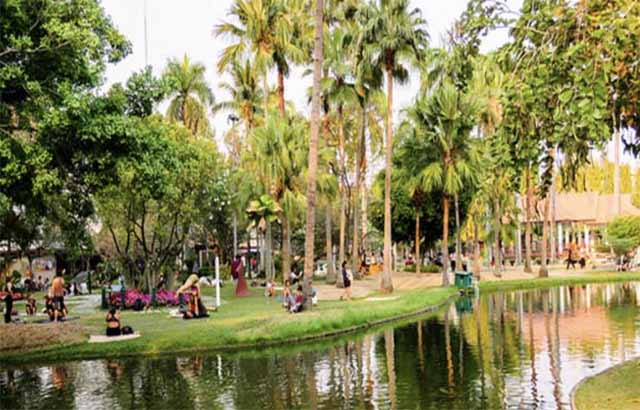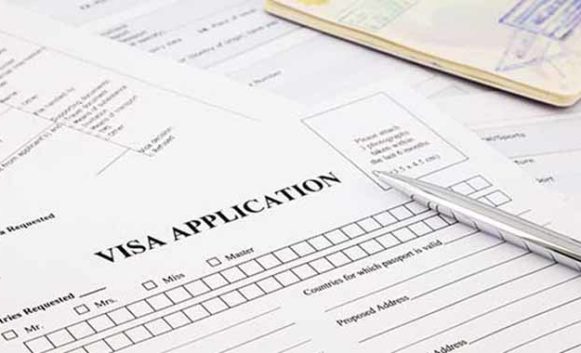Thailand Visa Information
by Rachel Devlin
For those considering whether to live or retire in Thailand, understanding how to obtain the proper visas and residency status is a critical part of the process. As with any foreign country, navigating the bureaucracy can initially seem daunting, but understanding the various options and requirements can help make the process smoother and less stressful. From long-term retirement visas to shorter-term tourist visas, Thailand offers a range of options to suit your individual plans and circumstances.
Tourist Visa

If you’re a U.S. passport holder looking to explore Thailand for tourism purposes, you’ll be pleased to know that getting a visa is not required. Under current regulations, U.S. citizens can stay in Thailand for up to 30 days per visit without a visa.
Should you want to extend your stay in Thailand as a tourist, there are a number of different visas available. One option is the Tourist Visa TR, which comes in both single-entry and multiple-entry formats. The single-entry visa is valid for three months from the date of issue, and allows travelers to stay in Thailand for up to 60 days from the date of entry. However, an extension of 30 days is possible, allowing for a maximum stay of 90 days. The processing fee for the application will cost $40.
The METV is the Multiple Entry visa, and is valid for six months from the date of issuance. With this visa, travelers can also stay for up to 60 days per entry, with the option to extend for an additional 30 days for a maximum stay of 90 days, allowing multiple entries into Thailand. With the flexibility of these visa options, travelers can fully immerse themselves in the culture and beauty of Thailand without worrying about frequent visa renewals. These longer tourist visas can be completed online here. The application fee for the Multiple Entry Tourist visa is $200.
Upon arriving in Thailand, travelers who hold a tourist visa may have the option to extend their stay for an additional 30 days at the discretion of an immigration officer. This extension allows for a total period of stay of up to 90 days, offering ample time to explore and enjoy all that Thailand has to offer. It’s important to note that the decision to grant an extension is at the discretion of the immigration officer, so it’s best to plan ahead and have a solid itinerary in mind. With proper planning, travelers can take advantage of this option and experience Thailand’s vibrant culture, stunning scenery, and warm hospitality to the fullest.
[thailand_signup]
Non-Immigrant “O” Visa
The non-immigrant visa is commonly referred to as the ‘Retirement Visa’, and there are actually various types all with slightly different processes. The first one to consider is a Non-Immigrant O visa.
This visa is for people 50 years or older who want to stay in Thailand for up to 90 days. Meaning, every 90 days you’ll need to go to the border and get your visa stamped and renewed. This visa doesn’t allow the holder to work while in Thailand, but it does allow them to stay in the country as a retiree or for other non-working reasons. To be eligible for this visa, the applicant must not have any legal issues that would prevent them from entering Thailand, and possess health insurance that covers at least 40,000 baht ($1190) for outpatient treatment and 400,000 baht ($11,900) for inpatient treatment while in Thailand.
You can get this insurance from a Thai or foreign insurance company. If you choose a foreign company, you must provide the original insurance policy document and two copies. If you choose a Thai company, you need to provide two copies of the insurance policy or the original document if available. You also need to complete and submit a Foreign Insurance Certificate form, which can be downloaded from the website.
Non-Immigrant Visa Category “O-X” (Long Stay)

For those with long-term designs on retiring in Thailand, the Non-Immigrant Visa Category “O-X” visa allows applicants who are aged 50 years and over to stay in Thailand for up to 10 years without working. The holder of this visa can stay in Thailand for five years each time. The applicant must also have a bank deposit of at least 3 million baht ($89 000) in Thailand or a bank deposit of at least 1.8 million baht ($54 000) and an annual income of at least 1.2 million baht ($35 700).
The applicant must also have health insurance that covers Covid-19 with a total sum insured of at least 3,000,000 THB or $100,000 per policy year. Applicants must not have a criminal record or any prohibitive diseases, and they must not be prohibited from entering Thailand. The necessary documents for this visa include a health insurance policy document and a foreign insurance certificate, in addition to the applicant’s passport and two passport-sized photographs. Although it specifies a ten-year maximum period, at this stage, expats can still extend their visas each year.
Thailand Elite Visa
Applying for the Thailand Elite Visa is an easier yet more expensive option. This is a visa for non-Thai nationals who hold a Thailand Elite Card or a Thailand Privilege Card. To apply, the applicant must contact Thailand Elite to request authorization and mail some documents to the embassy or consulate.
These documents include a passport, two passport-size photos, a visa application form, a copy of flight confirmation or reservation, an official confirmation letter from Thailand Elite or relevant government agencies, medical insurance that covers at least 10,000 USD for medical costs incurred in Thailand (including COVID-19), and a pre-paid envelope for the return of the passport.
There are three popular Elite Visas. The Elite Easy Access is a five-year visa which costs under $18,000 USD. The Family Excursion (for two people) costs just under $27,000 USD and lasts for five years. Finally, a ten-year visa known as the Elite Alternative costs just under $27,000 per person. There are other advantages to having this type of visa, so to dive into the nitty gritty you can follow the link here.
Non-Immigrant O – Volunteer Visa

Another way some people get to live in Thailand is through volunteering. There aren’t many volunteer opportunities, but they are possible to find.
If you’re interested in volunteering in Thailand, there are important visa procedures you need to know. Firstly, please note that the family of NGO workers can no longer apply for a Non-Immigrant visa type O. They may instead apply for a Tourist visa or other types of visas they are qualified for.
To apply for a visa, you need to request one at least 15 working days before your intended travel date by filling in the information and uploading all required documents here. Please keep in mind that the visa application fee is non-refundable.
Make sure you have the following documents to upload in the system: passport information page, two passport-size photographs (2″x 2″), a declaration form (downloadable from the E-visa website), proof of flight confirmation/reservation indicating the trip from the US to Thailand, a recent bank statement ($700 per person and $1,500 per family), an invitation letter or an official letter from the NGO, charity, or organization you will be working with, and registration of the NGO/charity/association.
Wealthy Pensioner Visa
There is a very new Wealthy Pensioner Visa but it does involve a little more paperwork. If you have a personal income below USD 80,000 but no less than USD 40,000 per year, you’ll need to invest at least USD 250,000 in Thai government bonds, foreign direct investment, or Thai property. You’ll also need to have health insurance coverage of at least USD 50,000, social security benefits insuring treatment in Thailand, or a deposit of at least USD 100,000.
If your personal income is at least USD 80,000 per year, you’ll need to ensure the Thai government accepts the origin of the income. For more information, you can click here.Top of Form
Thai Residency
If you’re considering making Thailand your permanent home, knowing the eligibility criteria for a Thailand Permanent Residence Permit is important. The good news is that there are several ways to qualify!
First, suppose you’ve worked in Thailand for at least three years with a work visa and permit. In that case, you may be eligible if you have an extension of stay based on employment, have been with your current company for at least one year, and had a monthly salary of at least 80,000 Baht for two consecutive years or filed a tax return for an annual income of at least 100,000 Baht for two consecutive years.
Alternatively, if you’ve invested at least 3 Million Baht in a limited or public company in Thailand, you may also be eligible for permanent residency.
If you’re a close family member of a Thai citizen (parent, child, or spouse), that could also be a pathway to permanent residency.
If you have a BA Degree and are employed in a specific field that requires at least three consecutive years of work, you may also qualify as an expert.
As a part of the process, you’ll have to attend an interview and take a multiple-choice test, both of which are written in Thai. The processing fee is $225 and is non-refundable if you don’t qualify for residency. You will also need to submit your fingerprints.
It’s important to note that there’s a cap on the number of permits issued per country. Thailand only issues 100 Permanent Residence Permits per country each year, so realistically, your chances are slim.
Whether you are on a tourist or Non-Immigration visa, once you are in Thailand, and you want to extend your visa, you can organize a visa agent or fill out the paperwork yourself and save yourself a few hundred dollars. I cannot deny that it can be a little daunting and a little frustrating at times. Our best hint is to make sure that the paperwork is completely correct. If you sign in the incorrect spot, you are sent away, missing a date, back to the end of the line. So, ensure you have an eye for detail and follow all the instructions carefully. The few hoops we jump through at visa time are worth the new lifestyle and feeling of freedom a new retirement lifestyle offers.

